Turkey Hunting In The Rain: Tactics For Success
Long before the alarm clock sounded, rumbles of thunder could be heard in the distance. Flashes of lightning signaled the pre-dawn storms were approaching closer. Heavy rain could be heard pounding the rooftop. Would it be worth the effort to try to hunt a gobbler this morning? Is this really the best weather for turkey hunting? Do turkeys even move in the rain? Is turkey hunting in the rain even a viable strategy? Common sense would dictate to roll over, crawl under the blanket, and forget about rainy day turkey hunting. However, turkey season only lasts a few weeks and hunting time was limited. Work and family activities would limit trips to the turkey woods.
We can’t control the weather, but we can learn how to deal with it. There are certain things turkey hunters can do to adapt for chasing turkeys on a rainy day. Weighing out your options and knowing how turkeys react to rainy conditions can help fill a slot on your gobbler tag.
Understanding Turkeys: Do Turkeys Move in The Rain
Your approach to hunting turkeys in the rain should be a little different than on fair weather days. If the day begins stormy and heavy rain is falling gobblers and hens may opt to remain on roost well after daylight. But, as the storms move on and the rain subsides, the turkeys will leave their roost position and begin their day.
“Turkeys may not gobble when there is a heavy rain falling,” mentions Bob Phillips, of Lincoln, Ala. “But they will sometimes answer a call if close by.”
Phillips recommends looking for rainy day turkeys in open fields, food plots or along old logging roads. When on the ground turkeys will hang out in more open areas to rely on their keen eyesight to spot any danger from predators. The rain falling on leaves and through the trees limits their hearing.
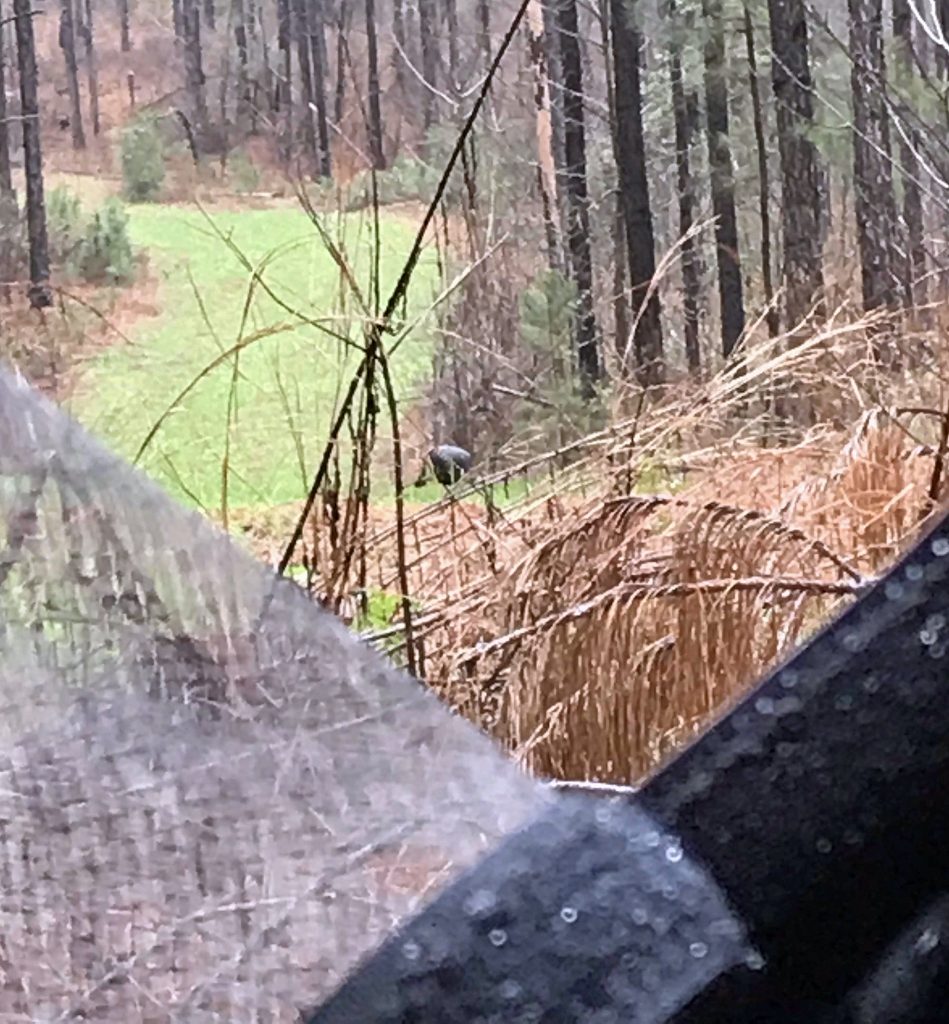
During rain events gobblers may approach from any direction and come in without calling.
Hopefully, turkey hunters have done a little scouting and know where the open fields and food plots are located. Visiting these areas ahead of a rain event can help hunters get a clue as to where the turkeys may enter the field. Turkey chasers should look for turkey tracks and droppings that would indicate the birds are visiting the area.
Top areas to focus your hunt are pastures, harvested grain fields, right-of-ways along power and gas lines. Use a quality pair of binoculars to scan the field for turkeys. Take note of their direction of travel and if any gobblers are present. A flock of turkeys or even a single bird can spend hours strolling in an open area during a rain, meaning they do move in the move.
Going in Blind
Most turkey hunters own a poncho or a top-notch camo rain suit. While these garments provide protection in a light rain or drizzle, it can be a long day if a heavy rain persists, and calling can be almost impossible. However, a pop-up style blind can be the cure for hunting rainy day gobblers.
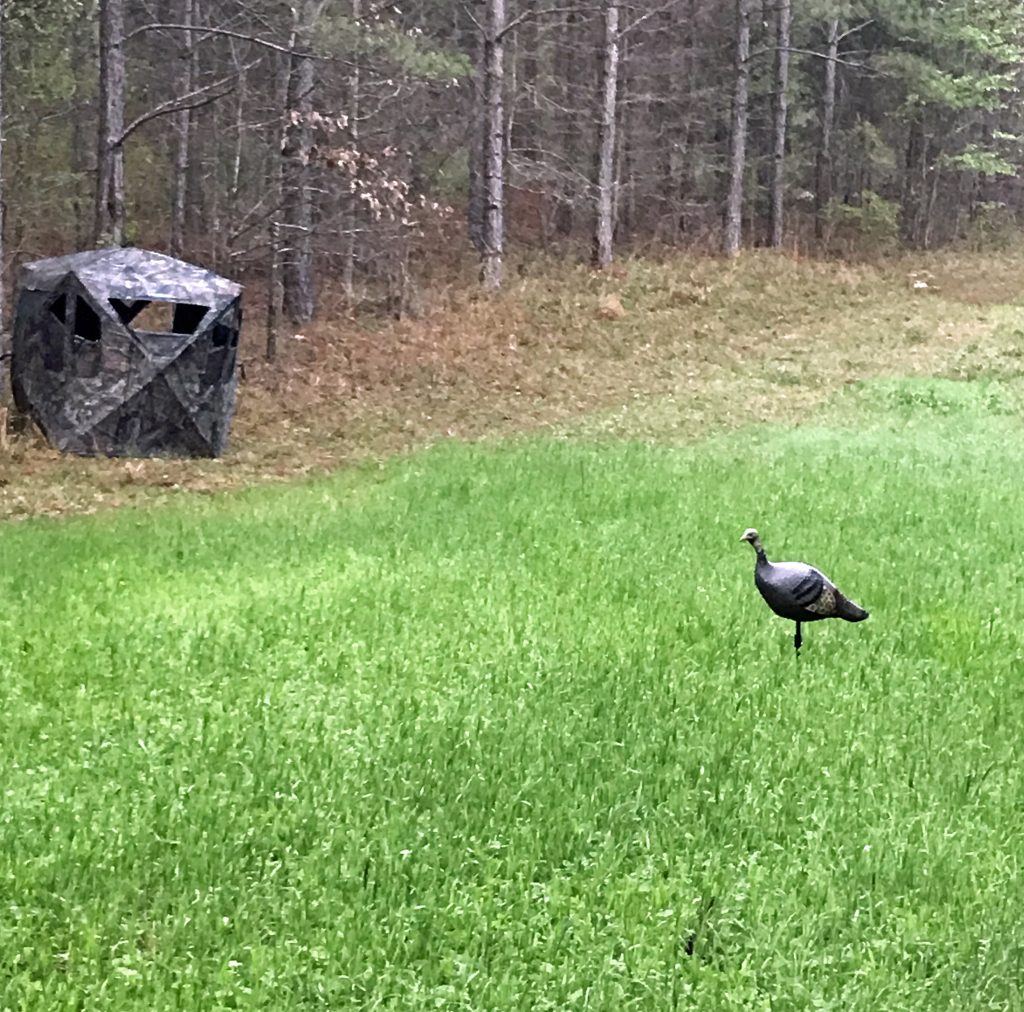
Portable blinds are easy to set-up and offer protection and concealment during rainy weather.
The pop-up and hub-style blinds are perfect for hunting turkeys in the rain. The blinds are inexpensive, light-weight and can be set up in minutes. Most models are roomy enough for two or more hunters. And one of the best features of these blinds is turkeys are rarely spooked by the blinds.
“Turkeys just don’t seem to pay any attention to the blinds,” comments Johnny Ponder of Munford, Ala. “Birds will walk right by the blind and don’t even notice it.”
Pop-up blinds provide concealment for the hunter while keeping everyone and all the gear dry. Hunters can bring along a folding chair or stool and remain comfortable for hours even during heavy downpours. Most blinds have several different shooting windows that can be opened just enough to make a shot on a gobbler.
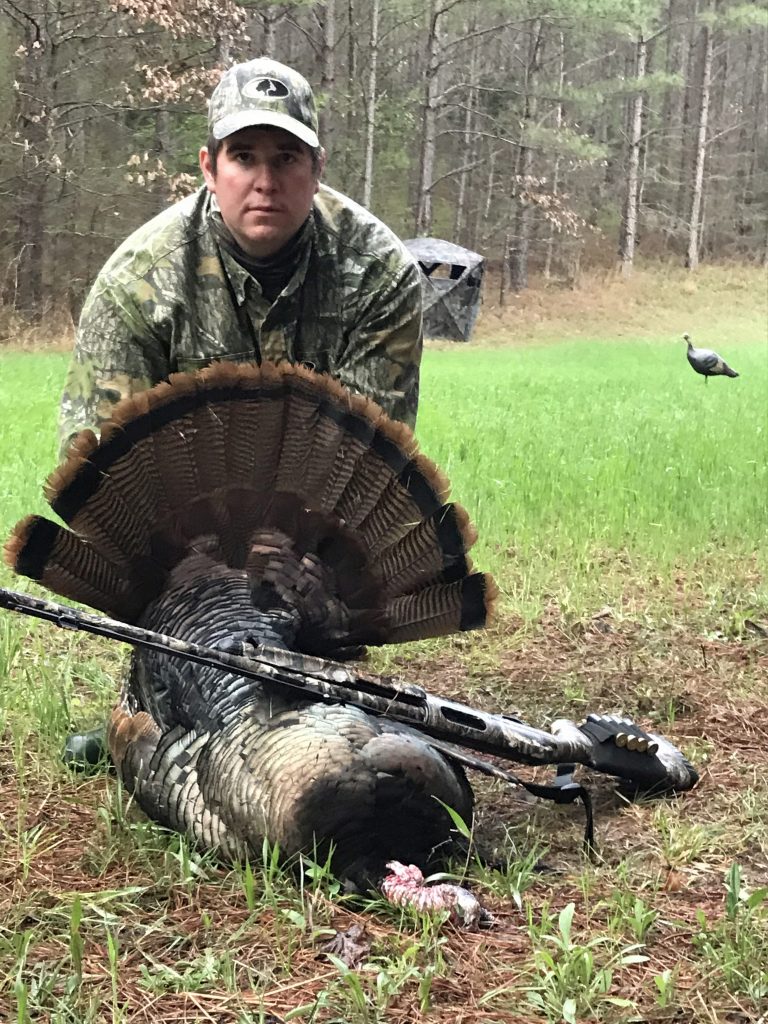
Hunting turkeys in the rain requires some extra patience but is well worth the effort.
Turkey hunters can watch the weather forecasts a few days ahead of a hunt and prepare for a rainy day. The pop-up blinds can be set up ahead of time before the rain arrives. Many models have stakes and tie down ropes to secure the blind if strong winds begin to blow.
“If possible, set the blind near a group of small trees to help with concealment,” Ponder said.. “Along the edge of patch of weeds or near a large tree will help the blind appear more natural.”
Phillips reminds turkey hunters not to forget about utilizing a shooting house during a stormy turkey hunt. While the shooting houses are not as portable as a pop-up blind, they can still provide protection when it may not be the best weather for turkey hunting. And since the shooting houses are more permanent fixture on the landscape, turkeys are accustomed to them.
Inside blinds or shooting houses out of the rain, hunters can utilize some of their favorite calls. Keep your calls dry and secure until inside confines of the blind. Mouth diaphragm calls will still work in wet conditions. However, certain box and frictions calls may not operate as well.
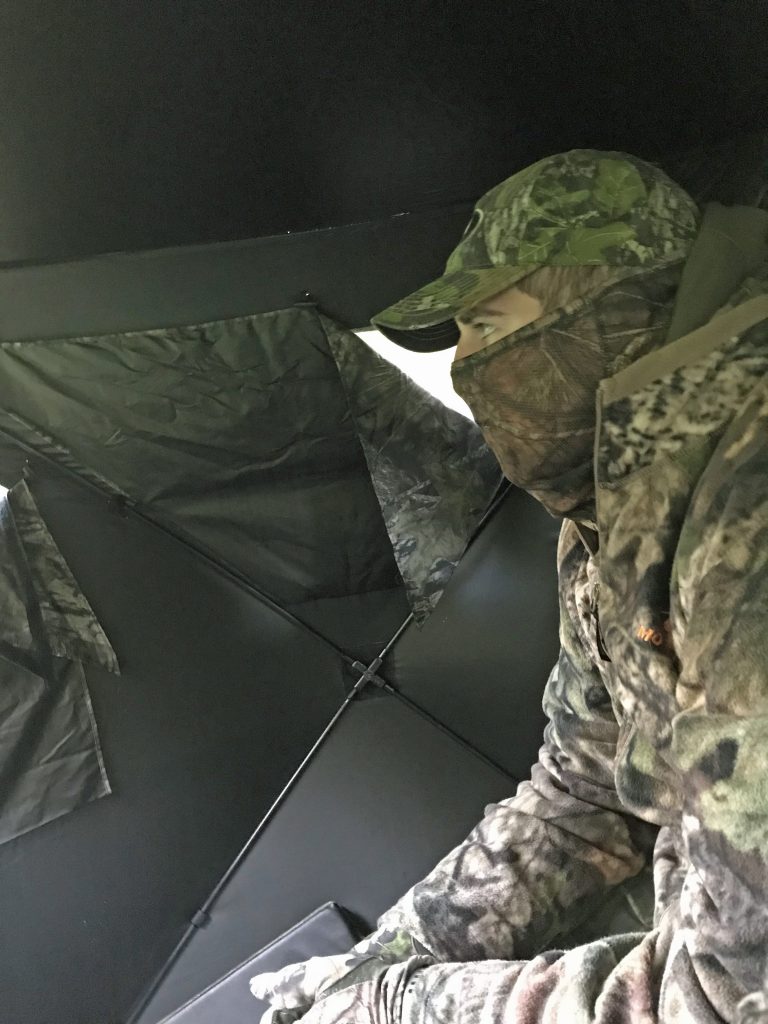
Pop-up blinds offer protection from rain and allows for easy calling.
There are a couple of disadvantages from hunting inside a blind or shooting house. Heavy rain pounding on the roof can make it difficult to hear any turkeys that may be calling. Also, field of view may be limited depending on the number of windows that can be opened.
Once situated in the blind or shooting house make certain there is room to shoulder a shotgun and put a bead on a turkey. Don’t wait until the bird appears to try to maneuver inside the blind. A shooting stick can make it easier to keep your shotgun in position.
Calling While Turkey Hunting in the Rain
Raindrops falling on leaves, trees and even the ground makes it difficult for turkeys and hunters alike to hear any type of turkey calls. Rain pounding on the roof and sides of a blind or shooting house can be deafening. However, hunters should continue with their calling when they are doing some rainy day turkey hunting.
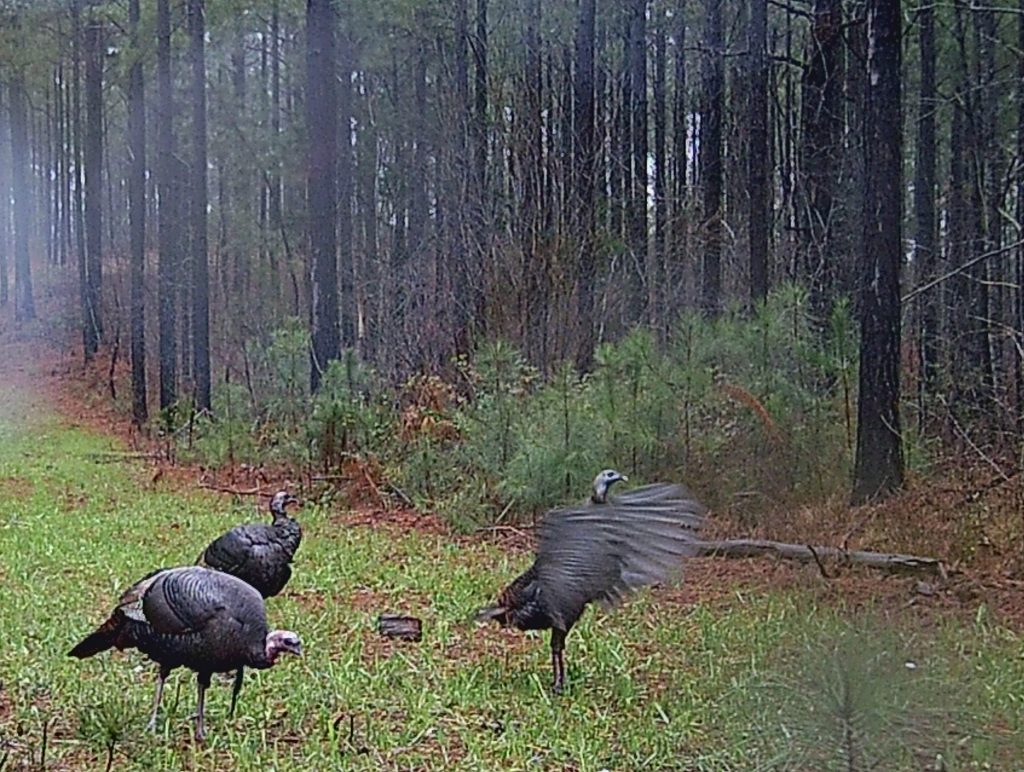
During rain events, your calling will need to be louder and more frequent.
“Your calling will need to be louder and a little more frequent during a rain,” Ponder advises. “The rain can limit the distance sound will travel.”
Ponder and Phillips both suggest using standard turkey calls like the “yelp” and “cackle”. Turkeys will call in the rain and will respond to various types of calls. Box calls generally give a little more volume and can be effective anytime. Tube yelpers are another type of call that gives good volume.
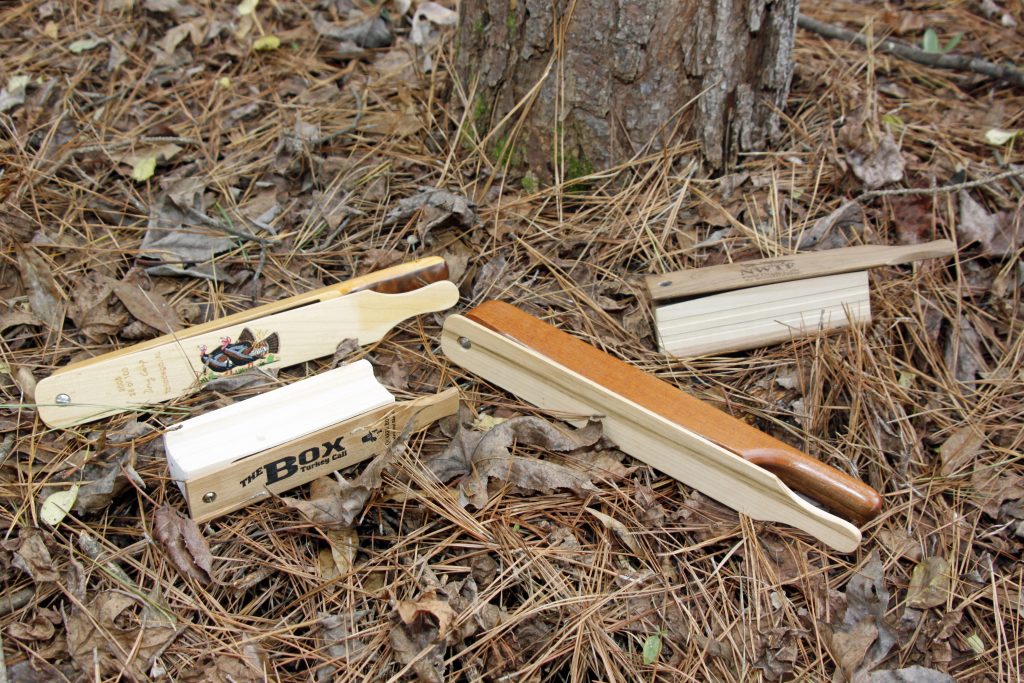
Box calls provide the extra volume needed when calling in heavy rain.
If the rain intensity decreases or stops, that is the time to add more calling. Hunters will want to try a variety of different calls. Don’t get discouraged if there is not a vocal response from a turkey. Often the bird may slip in unannounced. Always keep alert and a watchful eye as turkeys may appear from any directions.
Also, turkey hunters will want to utilize a couple of decoys. Other turkeys may see the decoys from a distance and move in to join them. A group of hens can also have a gobbler or two in tow. Set the decoys about 15- to 20- yards out from the blind.
Rainy days in the spring don’t mean your turkey hunt is a wash out. With some planning, the right gear, and a change in tactics you can coax an old gobbler into shotgun range, making turkey hunting in the rain a worthwhile endeavor.
Full Disclosure: This post may include affiliate links. There’s no extra charge to our readers for using these.
